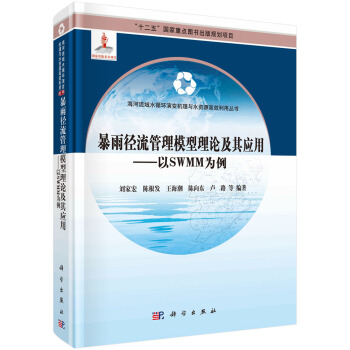![物理学家用的几何代数 [Geometric Algebra for Physicists]](https://pic.windowsfront.com/11593494/54a3b10bNf9796c78.jpg)

具体描述
编辑推荐
《物理学家用的几何代数》包括导论;二维和三维的几何代数;经典力学;几何代数基础;相对性和时空;几何微积分;经典电动力学;量子论和自旋;多粒子态和量子纠缠;几何;微积分和群论中的高等论题;拉格朗日和哈密尔顿技巧;对称和规范理论;引力。《物理学家用的几何代数》读者对象:物理、几何代数专业的学生、老师和相关的科研人员。内容简介
《物理学家用的几何代数》是一部不仅让对物理学感兴趣的读者的读物,也是一本对物理现实感兴趣的读者的读物。几何代数在过去的十年中得到了快速发展,成为物理和工程领域的一个重要课题。作者是该领域的一个领头人物,做了许多重大进展。书中带领读者走进该领域,其中包括好多应用,黑洞物理学和量子计算,非常适于作为一本几何代数物理应用方面的研究生教程。内页插图
目录
PrefaceNotation
1 Introduction
1.1 Vector (linear) spaces
1.2 The scalar product
1.3 Complex numbers
1.4 Quaternions
1.5 The cross product
1.6 The outer product
1.7 Notes
1.8 Exercises
2 Geometric algebra in two and three dimensions
2.1 A new product for vectors
2.2 An outline of geometric algebra
2.3 Geometric algebra of the plane
2.4 The geometric algebra of space
2.5 Conventions
2.6 Reflections
2.7 Rotations
2.8 Notes
2.9 Exercises
3 Classical mechanics
3.1 Elementary principles
3.2 Two—body central force interactions
3.3 Celestial mechanics and perturbations
3.4 Rotating systems and rigid—body motion
3.5 Notes
3.6 Exercises
4 Foundations of geometric algebra
4.1 Axiomatic development
4.2 Rotations and refiections
4.3 Bases, frames and components
4.4 Linear algebra
4.5 Tensors and components
4.6 Notes
4.7 Exercises
5 Relativity and spacetime
5.1 An algebra for spacetime
5.2 Observers, trajectories and frames
5.3 Lorentz transformations
5.4 The Lorentz group
5.5 Spacetime dynamics
5.6 Notes
5.7 Exercises
6 Geometric calculus
6.1 The vector derivative
6.2 Curvilinear coordinates
6.3 Analytic functions
6.4 Directed integration theory
6.5 Embedded surfaces and vector manifolds
6.6 Elasticity
6.7 Notes
6.8 Exercises
7 Classical electrodynamics
7.1 Maxwell's equations
7.2 Integral and conservation theorems
7.3 The electromagnetic field of a point charge
7.4 Electromagnetic waves
7.5 Scattering and diffraction
7.6 Scattering
7.7 Notes
7.8 Exercises
8 Quantum theory and spinors
8.1 Non—relativistic quantum spin
8.2 Relativistic quantum states
8.3 The Dirac equation
8.4 Central potentials
8.5 Scattering theory
8.6 Notes
8.7 Exercises
9 Multiparticle states and quantum entanglement
9.1 Many—body quantum theory
9.2 Multiparticle spacetime algebra
9.3 Systems of two particles
9.4 Relativistic states and operators
9.5 Two—spinor calculus
9.6 Notes
9.7 Exercises
10 Geometry
10.1 Projective geometry
10.2 Conformal geometry
10.3 Conformal transformations
10.4 Geometric primitives in conformal space
10.5 Intersection and reflection in conformal space
10.6 Non—Euclidean geometry
10.7 Spacetime conformal geometry
10.8 Notes
10.9 Exercises
11 Further topics in calculus and group theory
11.1 Multivector calculus
11.2 Grassmann calculus
11.3 Lie groups
11.4 Complex structures and unitary groups
11.5 The generallinear group
11.6 Notes
11.7 Exercises
12 Lagrangian and Hamiltonian techniques
12.1 The Euler—Lagrange equations
12.2 Classical models for spin—1/2 particles
12.3 Hamiltonian techniques
12.4 Lagrangian field theory
12.5 Notes
12.6 Exercises
13 Symmetry and gauge theory
13.1 Conservation laws in field theory
13.2 Electromagnetism
13.3 Dirac theory
13.4 Gauge principles for gravitation
13.5 The gravitational field equations
13.6 The structure of the Riemann tensor
13.7 Notes
13.8 Exercises
14 Gravitation
14.1 Solving the field equations
14.2 Spherically—symmetric systems
14.3 Schwarzschild black holes
14.4 Quantum mechanics in a black hole background
14.5 Cosmology
14.6 Cylindrical systems
14.7 Axially—symmetric systems
14.8 Notes
14.9 Exercises
Bibliography
Index
前言/序言
用户评价
作为一名对理论物理充满好奇的研究生,我一直渴望找到能够统一不同物理领域数学描述的工具。传统的向量微积分虽然强大,但在处理一些高维度的几何问题时,往往显得力不从心,需要引入大量的辅助变量和复杂的变换。而《物理学家用的几何代数》则提供了一个令人耳目一新的解决方案。书中清晰地阐释了如何使用多向量(multivectors)来同时表示点、线、面、体等几何对象,以及它们之间的关系。 我印象最深刻的是关于电磁学的章节。以往学习麦克斯韦方程组,总是觉得符号繁多,需要记忆很多分量的关系。但通过几何代数,作者将整个方程组浓缩成了一个简洁而优美的方程,这极大地增强了我对电磁现象内在联系的理解。书中对于如何利用几何代数来推导和简化各种物理方程的讲解,更是让我受益匪浅。它不仅教授了方法,更培养了一种用几何直觉去思考物理问题的能力,这对于任何希望深入理解物理世界的人来说,都是无价的。
评分这本《物理学家用的几何代数》简直是颠覆了我对数学工具的认知!我一直以为几何代数只是纯粹的数学抽象,深奥难懂,只存在于理论物理学家的脑海深处。然而,这本书的出现,让我看到了一种全新的、更加直观和强大的方式来处理物理问题。它不仅仅是引入了外积、内积等概念,更是将这些概念整合成一个统一的框架,让我们能够用更少的符号和更少的方程来表达复杂的物理关系。 我特别欣赏书中对于向量和旋量(spinor)几何的阐述。以往理解旋量,总感觉像是在雾里摸象,依赖于矩阵表示,缺乏一种内在的几何直觉。但作者通过几何代数的语言,将旋量自然地融入到几何框架中,揭示了它们在旋转和对称性中的核心作用。这让我茅塞顿开,原来很多我们熟悉的物理现象,如角动量、量子自旋,都可以用这种统一的代数语言得到优雅的解释。书中的例子,从经典力学的刚体运动到量子力学的基本粒子,都清晰地展示了几何代数在不同物理领域中的应用潜力。它不再是枯燥的数学公式堆砌,而是变成了解决实际物理问题的利器。
评分我一直对物理学的几何本质着迷,而《物理学家用的几何代数》这本书,就像一把金钥匙,为我打开了一扇通往更加深刻几何理解的大门。它没有从抽象的公理体系出发,而是从物理的直观需求出发,逐步引入几何代数的概念。书中对仿射空间、射影空间以及它们在物理学中扮演的角色进行了深入的探讨,这让我得以重新审视我们所处的时空结构。 我特别喜欢书中关于微分几何的讲解,如何用几何代数来描述曲线、曲面以及曲率,这比传统的张量分析要直观得多。它帮助我理解了曲率不仅仅是一个数值,更是空间几何性质的一种体现。此外,书中对于物理量之间的代数运算的几何解释,让我能够更清晰地把握它们之间的联系和转换,例如,通过几何代数,我可以更直观地理解如何从一个坐标系转换到另一个坐标系,而无需进行繁琐的矩阵乘法。
评分这本书让我意识到,我过去在物理学习中可能一直在用“拐杖”,而《物理学家用的几何代数》则给了我一双“翅膀”。它提供的统一语言,能够优雅地处理从欧几里得空间到闵可夫斯基时空,甚至是更高维度空间的几何问题。书中对于 Clifford 代数和它的物理应用的介绍,让我得以一窥粒子物理和量子场论的深层结构。 我之前对量子力学的理解,总觉得其概率解释和波函数的存在有些神秘。但通过几何代数,特别是旋量在描述粒子自旋上的应用,我开始感受到一种更深层次的几何规律在支配着微观世界。这本书的魅力在于,它能够让你在不同物理理论之间建立起清晰的联系,并且用一种更加统一和简洁的方式来理解它们。它不是简单地罗列公式,而是引导你构建一种关于物理世界内在几何结构的直观感受。
评分在我看来,《物理学家用的几何代数》是一本里程碑式的著作,它为物理学界提供了一种更强大、更具普适性的数学工具。这本书的写作风格非常吸引人,作者将复杂的数学概念用清晰的语言和生动的例子阐释出来,使得即使是对几何代数初学者也能逐步理解。 我尤其欣赏书中关于广义相对论的应用。以往学习爱因斯坦场方程,总觉得其张量形式晦涩难懂,难以把握其几何意义。但通过几何代数的框架,作者能够用一种更加简洁的方式来表达时空的弯曲和引力场的性质,让我对广义相对论有了更深刻的理解。它不仅教授了如何使用几何代数来解决具体的物理问题,更重要的是,它激发了我用一种全新的视角去审视物理学。这本书的价值在于,它不仅仅是一本数学工具书,更是一本启迪思想的书。
评分此书海外原版很贵的,需要两千多元人民币,在中国大陆印刷,纸张一般,但性价比很高!几年后此书会被疯抢至缺货的,因为研究几何代收的人会一下子多起来。
评分一本学习几何代数的好书,内容系统、全面。买来放书桌上,闲时翻翻,多少会有些收获。
评分此书海外原版很贵的,需要两千多元人民币,在中国大陆印刷,纸张一般,但性价比很高!几年后此书会被疯抢至缺货的,因为研究几何代收的人会一下子多起来。
评分一本学习几何代数的好书,内容系统、全面。买来放书桌上,闲时翻翻,多少会有些收获。
评分个人谨慎推荐。
评分一本学习几何代数的好书,内容系统、全面。买来放书桌上,闲时翻翻,多少会有些收获。
评分好书,专业课要用到。
评分一本学习几何代数的好书,内容系统、全面。买来放书桌上,闲时翻翻,多少会有些收获。
评分一本学习几何代数的好书,内容系统、全面。买来放书桌上,闲时翻翻,多少会有些收获。
相关图书
本站所有内容均为互联网搜索引擎提供的公开搜索信息,本站不存储任何数据与内容,任何内容与数据均与本站无关,如有需要请联系相关搜索引擎包括但不限于百度,google,bing,sogou 等
© 2026 book.coffeedeals.club All Rights Reserved. 静流书站 版权所有


![做中学丛书:101个天文小实验 [Janice VanCleave's Astronomy for Every Kid: 101 Easy Experiments that Really Work] pdf epub mobi 电子书 下载](https://pic.windowsfront.com/11640799/54cf1081Nb023c448.jpg)

![统计和计算逆问题 [Statistical and Computational Inverse Problems] pdf epub mobi 电子书 下载](https://pic.windowsfront.com/11647753/54e1b517N72741d9a.jpg)
![生态智慧:生态可持续性 [Ecological Sustainability] pdf epub mobi 电子书 下载](https://pic.windowsfront.com/11699887/5652a6c1N52bc021a.jpg)
![大气污染控制技术与策略丛书:烟气催化脱硝关键技术研发及应用 [Development and Application of Key Iechnologies for Selective Catalytic Reduction of Nox From Flue Gas] pdf epub mobi 电子书 下载](https://pic.windowsfront.com/11701609/556f9fe3N9d0f4ce1.jpg)





![黎曼的学术遗产:150年巡礼(英文版) [The Legacy of Bernhard Riemann After One Hundred and Fifty Years] pdf epub mobi 电子书 下载](https://pic.windowsfront.com/11848314/5a8e56d3Nfd514c17.jpg)


![数学的本性(珍藏版) [Memorabilia Mathematica] pdf epub mobi 电子书 下载](https://pic.windowsfront.com/11883757/56f8fee3N85d82212.jpg)
![数学与文化(珍藏版) [Mathematics And Culture] pdf epub mobi 电子书 下载](https://pic.windowsfront.com/11884296/56f8fee4Ned6c76f2.jpg)
![无穷的玩艺 数学的探索与旅行(珍藏版) [Playing With Infinity Mathematical Explorations And Excursions] pdf epub mobi 电子书 下载](https://pic.windowsfront.com/11884302/56f8fee4N355b1981.jpg)

![GIS应用与开发丛书:CityEngine城市三维建模 [CityEngine 3D Modeling Tutorial] pdf epub mobi 电子书 下载](https://pic.windowsfront.com/12109136/58a12bd8N538ae034.jpg)
